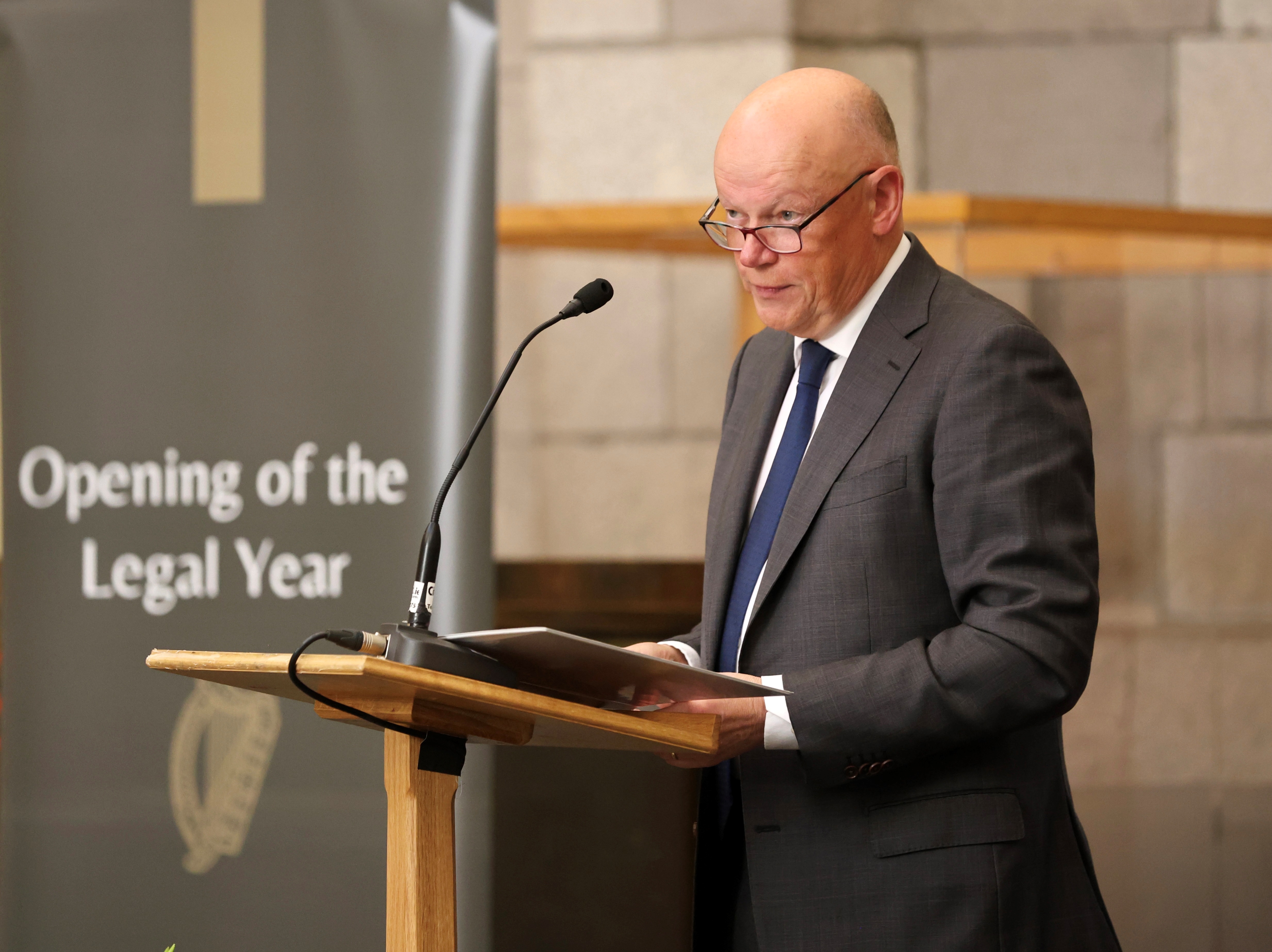The Opening of the Legal Year 2025 was marked by a formal ceremony in the Round Hall of the Four Courts on Monday, 6 October. Chaired by Ms. Justice Elizabeth Dunne, judge of the Supreme Court and Chair of the Courts Service Board, the event featured keynote addresses by Minister for Justice, Home Affairs and Migration, Jim O’Callaghan and Chief Justice, Donal O’Donnell.
Ms. Justice Dunne opened the ceremony by welcoming the distinguished guests from the Judiciary of Ireland, senior judges from other jurisdictions, senior office holders, civil servants and NGOs. She noted the importance of the occasion as a moment “to reset, to reflect on the past year’s achievements and challenges, and… to set our intentions for the months ahead.”
She highlighted the Courts Service’s progress under its Modernisation Programme and acknowledged the contributions of the wider justice sector. She also noted the impact of increased judicial appointments but cautioned that recent and anticipated increases in the number of judges requires adequate resourcing for the Courts Service.
Minister O’Callaghan praised the integrity and professionalism of the Irish judiciary and outlined major reforms underway. He emphasised the significance of the newly established Judicial Appointments Commission, reaffirmed the Government’s commitment to increasing judicial numbers and improving access to justice through the Courts Modernisation Programme, which includes digital case management, video-enabled courtrooms, and user-friendly services.
The Minister referred to the Family Courts Act 2024 and the planned Dublin Family Courts Complex at Hammond Lane.
The Chief Justice delivered a wide-ranging address, reflecting on the judiciary’s role in a modern democracy and some of the challenges facing the courts. He welcomed the establishment of the Judicial Appointments Commission and acknowledged its early achievements, while calling for additional resources to sustain its work.
He also addressed the importance of legal aid reform, welcoming the recent Civil Legal Aid Review, which drew on work of the Chief Justice’s Working Group on Access to Justice, and the need to support those navigating an increasingly complex legal system.
On personal injuries litigation, the Chief Justice warned that failure to update the guidelines could undermine the system:
“If the Injuries Resolution Board and Courts are increasingly invited to depart from the guidelines… the guidelines will inevitably begin to fray. Over time they will petrify and decay.”
The Chief Justice referred to some recent commentary on the length of judgments, highlighting the need for transparency and rigour in judicial reasoning:
“Rigour, transparency and the fair analysis of the arguments of the parties are all essential to courts which have only judgment.”
The Chief Justice announced that Supreme Court proceedings will now be recorded and made available on the Court’s website, enhancing public access and understanding of proceedings.
In closing, Chief Justice O’Donnell reflected on the role of the courts in safeguarding democracy:
“The relative stability of our system cannot be taken for granted. It is something that we must protect, renew and reinforce.”
He emphasised the importance of institutional cooperation and the need to reinforce the structures that uphold judicial independence.
View a recording of the event here, and the full text of the Chief Justice’s speech here.

